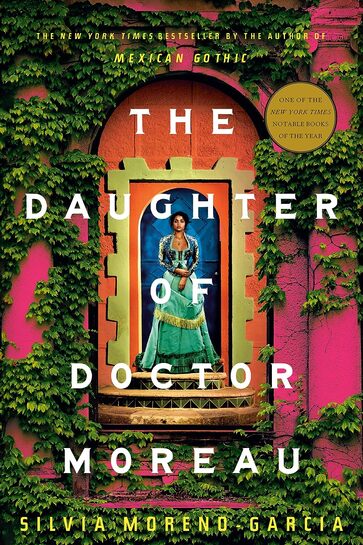 I’m familiar with the Island of Doctor Moreau in the way that most people are: I’ve heard of it, know the basic story of a mad scientist doctor making human/animal hybrids through vivisection, and that’s about it. It’s a “classic” so of course I haven’t read it cover to cover. But that didn’t stop me from being intrigued by the re-imagining of said classic with the added bonus of the doctor’s daughter (who doesn’t exist in the original). When you add that it's set in a historical fiction backdrop during nineteenth century Mexico, and the conflict between the native Maya population and the Spanish/European colonizers, then I'm sold! With that setting, Doctor Moreau’s hybrids have a much more chilling, and all too real, purpose: a form of slave labor to the wealthy landowner and patron of our mad doctor. The writing was lovely and I thought fit the time period the book is set in perfectly, and I loved the parallels made between the hybrids and how most indigenous populations are treated by colonizers. So why didn’t I love this book?
0 Comments
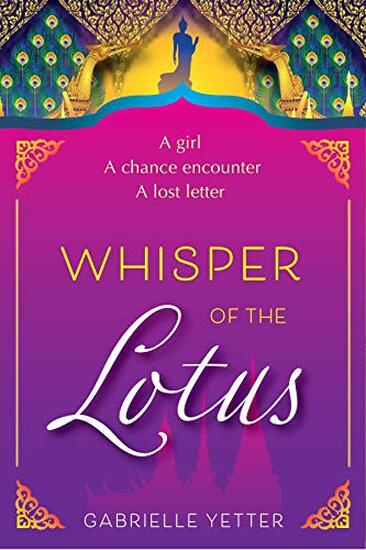 “Whisper of the Lotus” is a little deceiving, but not in a bad way! The synopsis focuses heavily on this idea of the main character, Charlotte, needing excitement, fleeing a dead-end job to impulsively visit her childhood best friend (Roxy) who has been living and thriving in Cambodia for the past 3 years after leaving London. In reality, the book is much deeper than that. Charlotte is less fleeing a boring existence, as she is getting away from a narcissistic parent who has emotionally taken advantage of her and guilt tripped her into never leaving. We watch Charlotte do things for herself for the first time in nearly a decade and through the experience of traveling so far away and meeting so many kind people, discover a voice that her mother almost completely took away. I don’t know if this book necessarily needed to take place in Cambodia in order for it to have the same emotional impact as we learn more and more of the secrets hidden from Charlotte, but here we are. 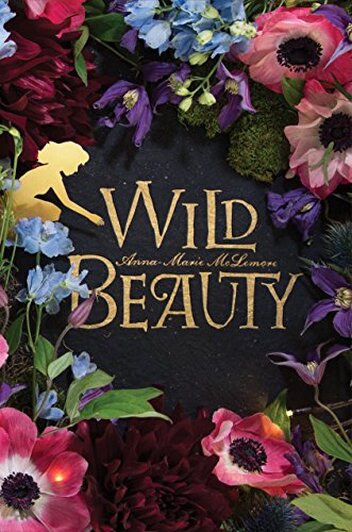 “Wild Beauty” is a magical realism tale steeped in family, race, class, and beauty. We follow our main characters, Estrella and Fel, as they navigate defining themselves, or redefining in Estrella’s case and what space they occupy in the gorgeous gardens of La Pradera, a garden that has cursed the women of Estrella’s family to lose all their lovers, and if they themselves try to leave, it will kill them too. I loved the undercurrent of malevolence always present in the gorgeous botanical garden, and the slight mystery that, that posed, especially when it came to how Fel arrived in the garden in the first place. But that mystery was very, very slow to unravel, which is typical for magical realism I’m finding, but makes me think that this genre and I are just never going to get along. 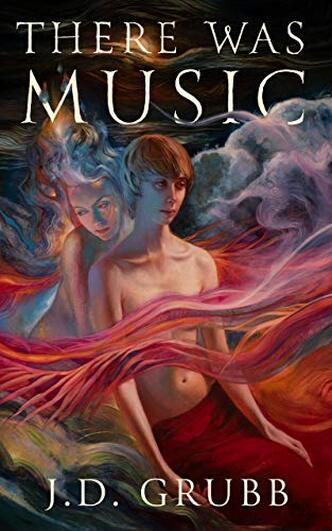 “There was Music” is a literary fiction fantasy that follows Prisoner 43-1-12 along the path of her many names and the different lives she lives all in one lifetime. Her life is far from easy, when raiders destroy her family’s horse ranch, it sets off a series of events that destroy the world 43-1-12 knew and plunges her into extreme survival mode for years without a break. This story is dark, full of heavy and traumatic themes from torture, sexual assault and rape, as well as suicidal ideations, but the story, at its core, is about healing, so it’s not all doom and gloom, I promise. That being said, I loved the tension of the first half of the book so much, and was sad to see that end. 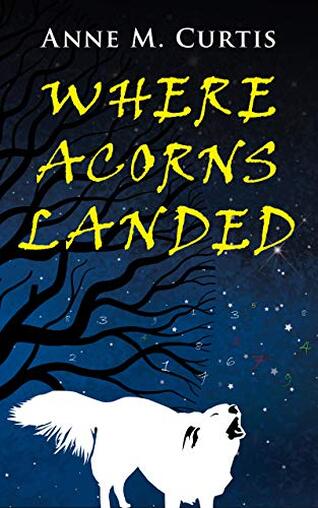 “Where Acorns Landed” is literary fantasy with an absurdist fiction flare. Meshing Celtic Mythology with Arthurian Legend, and sprinkled with supernatural elements, the reader follows Lowell and Brighid as they navigate loss, and new beginnings, all while clinging almost too tightly to a sense of normalcy. Under the guise of making a documentary, Lowell and Brighid are thrust together just in time to see their corner of the world succumb to a plethora of supernatural sightings. Neither Lowell nor Brighid know who is orchestrating their mystery project, one that seems impossibly linked to their lives, which gives this novel a dark, and sinister vibe to it that I rather enjoyed. Readers will be kept guessing and in the dark about what is happening and why all the way to the end—just like the main characters. |
Click the book images to see them on Amazon!
Categories
All
|






 RSS Feed
RSS Feed



















